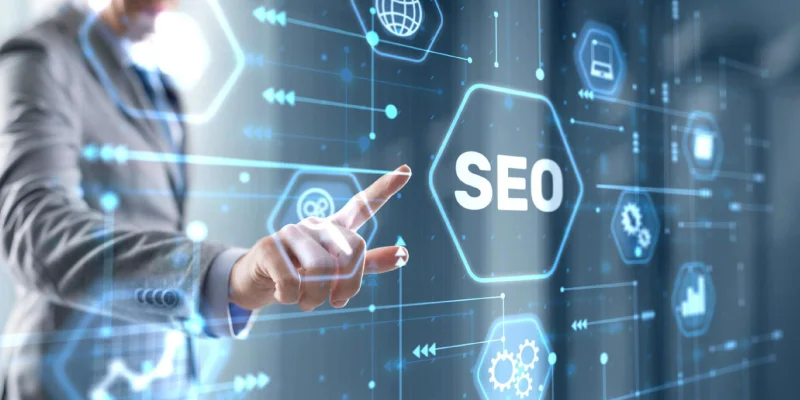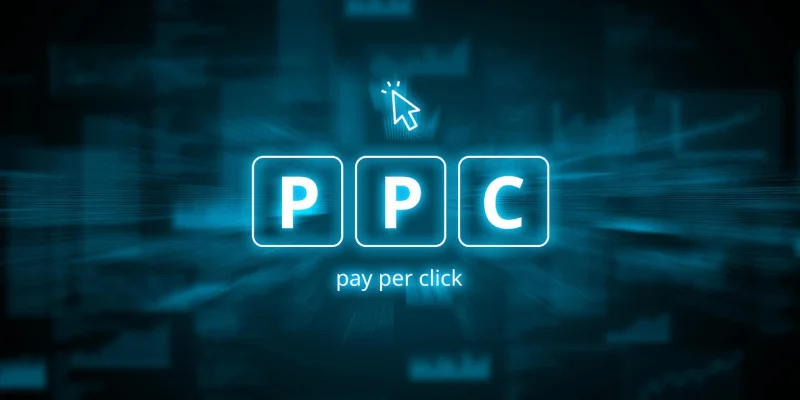You’re not the only one finding it difficult to publicise your brand-new company. Like you, many entrepreneurs first have trouble gaining clients. Balancing a digital marketing campaign’s expenses, upkeep, and outcomes is challenging. One of two digital marketing approaches is typically useful to solve this issue: pay-per-click (PPC) campaigns or search engine optimisation (SEO).
So which approach is best for you?
Our SEO/PPC experts will discuss the key components of SEO and PPC, along with their benefits and drawbacks, in this article. We will also describe which one to choose to enhance your digital marketing approach.
Before we start the blog, you can view our digital marketing company’s service area by visiting the website’s main page. Logo Designs Company, or LDC, operates in branding and digital marketing and offers services regarding these two. If you want to enrich your website with free and paid marketing, call us.
Let’s begin!
What is SEO?


SEO is the process of making your pages more search engine friendly so they appear in the organic results.
Usually, the SEO revolves around the four areas: –
- Keywords Research: – It helps you find what people are searching for.
- On-page SEO: – You can create content that search engines want to see.
- Off-page SEO: – You can gain authority and trust from other websites.
- Technical SEO: – You can ensure search engines can locate, crawl, and index your content.
SEO Pros
It May Result in Affordable Traffic
Effectively optimised pages with high search engine rankings generate consistent visitors without the ongoing expenses linked to sponsor digital advertising.
Yes, there are costs associated with content production, optimisation, and SEO tools. However, you don’t have to pay for the traffic itself.
Furthermore, SEO’s organic reach tends to increase over time.
Your website will draw more visitors without spending more money if it moves up the search results page. Making your original SEO investment more profitable over time.
It enables you to focus on various funnel stages
Different members of your audience are at different stages of the sales funnel.
At the top of the funnel, some are just beginning to learn about your brand. And still others are prepared to take out their wallets, already at the bottom of the funnel.
You may use SEO to develop a variety of content formats (blog articles, guides, case studies) that cater to the specific needs of each audience segment at each stage of the sales funnel. Every time a visitor peruses your material, this increases the likelihood that they will move on to the next stage of the funnel on your website.
Consumer Trust and Brand Awareness Can Both Rise from It
When you rank highly on SERPs, people become more familiar with your brand, and they will begin to notice it more frequently when they search.
Doing this may build your brand’s trustworthiness and put yourself as an expert in the field.
Because of your brand’s constant visibility, customers already know and trust it, even if they are just starting out in the digital marketing funnel. This may impact their future shopping choices.
For example, according to Edelman’s 2023 Trust Barometer research, 59% of respondents said they would rather pay more for a new product from a company they trust than a more expensive one.
Call our digital marketing company to get all these benefits in one call. Visit our site, fill out the form, and schedule a free session with us. Improve organic SEO with us.
Cons of SEO


For the following reasons, you might not be a fan of SEO:
The algorithms used by search engines are dynamic
Search engines, most notably Google, have made several algorithm changes over the years. Because of these adjustments, you’ll need to monitor your digital marketing plan and organic results closely.
Regular website optimisation is required
Getting your website to rank for your target keywords for a month is just the beginning of your work. To keep your site ranking, you will eventually need to optimise your content and web pages routinely.
Refreshing outdated content and deleting obsolete or expired links are two examples of optimisation.
It takes time for SEO to produce results.
It’s unlikely that SEO will provide you with results right away if your domain or website is brand-new. Google ranks websites based on several characteristics, many of which take time to establish in the weeks or months following the launch of your website.
It calls for advanced abilities and knowledge.
If you’re not hiring a professional to correctly optimise your site for search engines, make sure you understand your audience’s aims and provide them with high-quality content.
Operating a business while enrolled in technical SEO, writing, and link-building classes can be time-consuming and overwhelming. Still, it is possible if you are dedicated to using SEO as a revenue-generating approach.
What Is PPC?


PPC digital advertising is all about payment which occurs whenever each time somebody clicks on your ad and a fee is charged. One particularly well-liked type of PPC is search digital advertising.
PPC is useful outside of search engines. It encompasses display adverts that show up on other websites and social media digital advertising. However, in this article, we are concentrating only on Google search advertisements.
PPC Pros
Here are a few PPC benefits:
PPC is quick, and its advertisements show up above natural results
PPC happens quickly. Any digital advertising platform will allow you to launch a campaign immediately.
Your website would appear on the search engine result page if you were to launch a PPC campaign for your chosen phrase. Because of this rating, your viewers will notice you before they scroll down to view other results.
Granular targeting is possible using PPC
With the majority of PPC platforms, you can target people interests, demographics, location and other characteristics.
A/B testing for PPC ads can be completed fast
You can simultaneously run two ads with a PPC campaign to track which one converts better.
To make changes, simply alter certain ad elements, such as the ad copy, and let the ads run for a while. Depending on how well it performs, you can “kill” Google advertisements or continue with optimisation to get better results.
Working on PPC requires in-depth focus, effort, and monitoring. Otherwise, performing it yourself could result in a heavy loss, but working with a digital marketing company can solve this risk and allow you to avoid even minor errors.
PPC Cons


Implementing It Can Be Difficult
To set up a profitable PPC campaign, you must grasp several elements, including targeting choices, ad content, and keyword research.
It might also be difficult to pick up the basics of using sites like Google Ads, particularly given how often features and interfaces are updated.
Thus, running a campaign can be very demanding, especially since even minor campaign setup errors, like misconfiguring targeting preferences, can result in wasted digital advertising dollars.
To lower the risk, you might increase the overall cost of your efforts by hiring experts to oversee them.
Constant Investment is needed
Your results finish when the money you spend on PPC ads does.
In contrast to SEO content, which frequently keeps attracting people even after the effort is over, PPC digital advertising doesn’t provide long-term benefits without a continuous commitment.
Businesses that depend on a steady online presence may suffer greatly from this sudden stop in traffic, conversions, etc.
It Could Become Pricey
Your PPC budget might be rapidly depleted by placing bids on well-known keywords.
How come? As a result, numerous companies have placed bids using the exact keywords.
It is difficult to sustain a positive ROI with such a high cost per click, particularly for small organisations or those with constrained digital advertising resources.
You might focus on more specialised keywords to prevent going over budget. However, that might lessen your advertisement’s exposure and possible reach.
It Follows Tight Guidelines
There are tight character and format limitations for PPC search digital advertising.
These limitations aid clear messaging, but storytelling and brand personality are also constrained.
This limitation may make it challenging to stand out in a crowded ad space.
Which is better, PPC or SEO?
It depends on whether using a fork or spoon is preferable when deciding between SEO and PPC.
Presenting pasta? Indeed, I would adore a fork. Clear soup? With a spoon, please.
Similarly, there are instances in which PPC is superior to SEO and vice versa.
This brings us to a few of these scenarios.
When to Use SEO?
SEO is more effective when used in the following scenarios:
- You don’t have much money for digital marketing.
- Building brand authority is what you want to do.
- Maximising your long-term return on Investment (ROI) is your goal.
- Content creation should target readers at various points in the sales funnel.
When to Use PPC
PPC is more effective when used in the following scenarios:
- You need immediate results.
- Your product is unique or unmatched in the market.
- You’re digital marketing an offer with a deadline, such as a holiday sale.
- Your goal is to drive visitors to a sales or landing page.
Closing Remarks
In the end, your business circumstances will determine whether you use PPC or SEO. To determine which is best for you, weigh the advantages and disadvantages of both. If feasible, combine the two tactics to get even better outcomes for your company.
Call our digital advertising agency now if you still feel which to choose. We will let you help with that.
Moreover, LDC is also known as a logo design company in the UK and offers premium branding services. Schedule a complimentary session with us.


